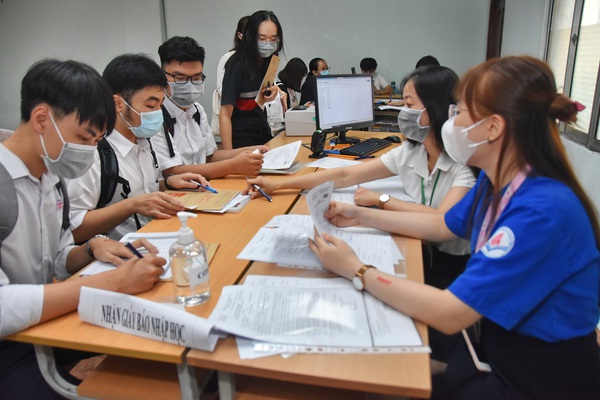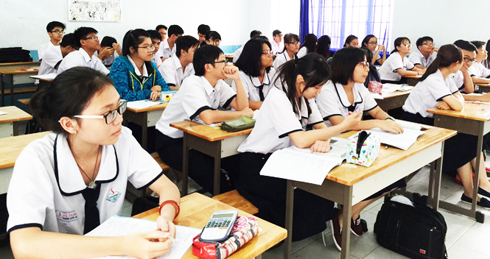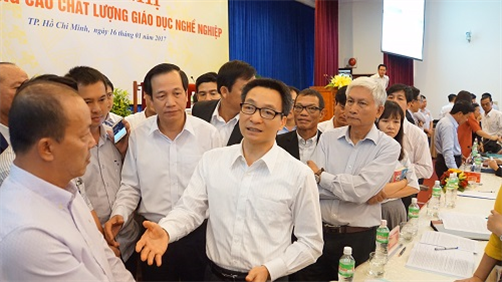What are the regulations on the competence requirements of learners after graduating from intermediate-level training or college in Vietnam? - Mai Anh (Gia Lai)
Competency requirements that learners achieve after graduating from intermediate-level training or college in Vietnam
The requirements for the competencies that learners achieve after graduating from intermediate or college degrees are specified in Article 5 of Circular 12/2017/TT-BLDTBXH as follows:
(1) Intermediate-level training requires learners after graduation to have the ability to perform a number of complex jobs in the industry or profession; having the ability to apply techniques and technologies to work; being able to work independently or in groups, specifically:
* Knowledge:
- Practical and theoretical knowledge are relatively wide within the scope of the training industry or profession;
- Basic knowledge of politics, culture, society, and law to meet the requirements of professional work and social activities in the professional field;
- Knowledge of information technology to meet job requirements.
* Skill:
- Cognitive and professional skills to perform tasks, solve problems by selecting and applying basic methods, tools, documents, and information;
- Skills in using professional terms of the training industry in effective communication in the workplace; critique and use alternative solutions; evaluate the work quality and performance results of team members;
- Having foreign language ability at level 1/6 of Vietnam's Foreign Language Competency Framework.
* Autonomy capacity and responsibility:
- Working independently in changing working conditions, taking personal responsibility and partial responsibility towards the team;
- Instructing and supervising others to perform pre-determined tasks;
- Evaluate group activities and performance results.
(2) College-level training requires learners to be capable of performing intermediate-level jobs and handle complex jobs in the training industry or profession; have the ability to be creative, apply modern techniques and technologies to their work, guide and supervise other people in the group to do the work, specifically:
* Knowledge:
- Extensive theoretical and practical knowledge in the field of training;
- Basic knowledge of politics, culture, society, and law to meet the requirements of professional work and social activities in the professional field;
- Knowledge of information technology to meet job requirements;
- Practical knowledge of management, principles and methods of planning, organizing, implementing, monitoring, and evaluating implementation processes within the scope of the training industry or profession.
* Skill:
- Creative thinking and cognitive skills to identify, analyze, and evaluate information in a wide range;
- Professional practice skills to solve the most complex jobs within the training industry or profession;
- Ability to effectively communicate information, ideas, and solutions to others in the workplace;
- Having foreign language ability level 2/6 in Vietnam's Foreign Language Competency Framework.
* Autonomy capacity and responsibility:
- Working independently or in a team, solving complex problems and problems in changing working conditions;
- Guide and supervise others to perform defined tasks; individual responsibility and responsibility towards the group;
- Evaluate the quality of work after completion and the performance results of team members.

Competence requirements of learners after graduating from intermediate-level training or college in Vietnam (Internet image)
Minimum requirement regarding knowledge for intermediate and college degrees in Vietnam
Pursuant to Article 4 of Circular 12/2017/TT-BLDTBXH, the minimum requirement regarding knowledge for intermediate and college degrees in Vietnam is prescribed as follows:
- Intermediate:
+ The minimum amount of knowledge for intermediate level is 35 credits for holders of high school diploma; 50 credits for those who have a lower secondary school diploma and have a study period of 1 to 2 years, depending on the training industry or profession.
+ The volume of theoretical knowledge and practical skills depends on each industry, and the training profession must ensure the ratio: theory accounts for 25%–45%; practice for 55%–75%.
- College degree:
+ The minimum amount of knowledge for a college degree is 60 credits, and the study period is from 2 to 3 years, depending on the training industry or profession.
+ The volume of theoretical knowledge and practical skills, depending on the training industry and profession, must ensure the following ratio: theory accounts for 30%–50%; practice accounts for 50%–70%.
Mai Thanh Loi
- Key word:
- intermediate-level training
- college
- in Vietnam
 Article table of contents
Article table of contents










.Medium.png)
.Medium.png)
.Medium.png)
.Medium.png)
